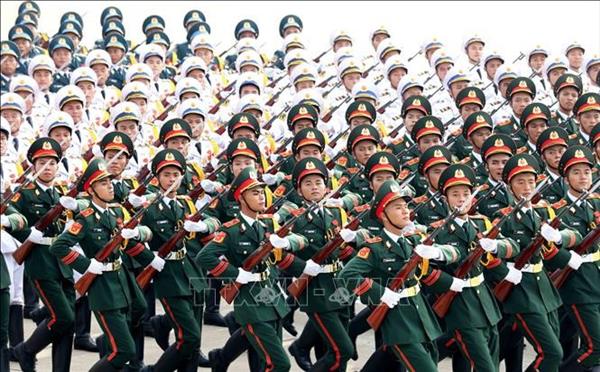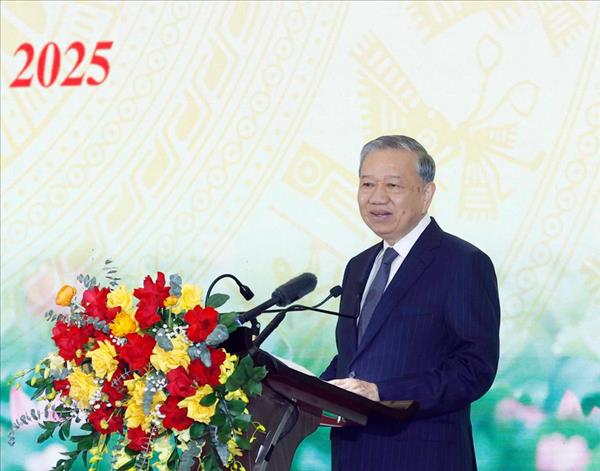For generations, Vietnamese have treasured the tradition as they consider family a home and a cradle to nurture them from childhood to adulthood.
The cultural value of Tet is always preserved and upheld via traditional customs such as visiting ancestors’ graves, making “banh chung” (square glutinous rice cake), cleaning houses, and holding worship rituals on the Lunar New Year’s Eve.
There are popular scenes on this occasion such as crowded flower or Tet markets, children wearing new clothes, elderly scholars writing calligraphy, and family gatherings, bringing people closer and strengthening family bonds.
Since ancient times, Vietnamese people have practiced the tradition of worshipping ancestors. No matter how poor they are, every family still prepares a few food trays to pay homage to ancestors, a demonstration of descendants’ filial piety.
To the Vietnamese, meals are moments of reunion and also a place to show respect, love, and care for each family member. Children express respect for their grandparents and parents through every gesture of eating and drinking. A Tet reunion meal becomes even more special because it is considered the soul of unity and love, forming strong bonds among generations in the family.
In addition, Tet also affords a chance for family members to celebrate the longevity of their grandparents and parents. Depending on customs of each area, longevity celebrations can be held for people aged 60 or over to show care and respect for the elderly.
For generations, “going home for Tet” has been viewed as an annual pilgrimage to the place of birth. Family reunion every Tet is not just the story of a family or a place of sentimental value, but it also represents the value of moral and cultural education and the matter of survival and sustainability of a nation. Preserving family tradition is a contribution to the upholding of the national cultural identity in the fast-developing world of contemporary life. This tradition brings people closer to the homeland, community, and families and making them live more responsibly towards the past, present, and future./.

















